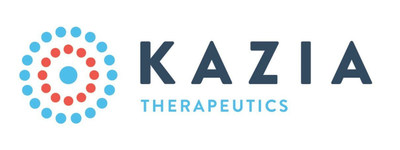KAZIA'S PAXALISIB RECEIVES FAST TRACK DESIGNATION FROM FDA FOR TREATMENT OF SOLID TUMOR BRAIN METASTASES HARBORING PI3K PATHWAY MUTATIONS IN COMBINATION WITH RADIATION THERAPY
- Kazia Therapeutics' paxalisib has been granted Fast Track Designation (FTD) by the FDA for the treatment of brain metastases
- All patients in the ongoing Phase 1 clinical trial responded positively to the combination of paxalisib with radiotherapy
- None.
Insights
Analyzing...
The FDA's decision to grant FTD was based on promising clinical data from an interim analysis of an ongoing Phase 1 clinical trial in which patients with brain metastases from a primary tumour are receiving paxalisib in combination with radiotherapy (NCT04192981). These clinical data were presented at the 2022 Annual Conference on CNS Clinical Trials and Brain Metastases, jointly organized by the Society for Neuro-Oncology (SNO) and the American Society for Clinical Oncology (ASCO), by Dr. Jonathan Yang, lead investigator in the clinical trial. All nine evaluable patients in the trial (
Key Points
- FTD is designed to expedite development of pharmaceutical products which demonstrate the potential to address unmet medical needs in serious or life-threatening conditions.
- FTD provides Kazia with enhanced access to FDA, including opportunities for face-to-face meetings and written consultation throughout the remaining development of paxalisib. Drugs granted FTD may also be eligible for Accelerated Approval and Priority Review, which may result in faster product approval.
- Paxalisib was previously granted FTD for glioblastoma in August 2020, giving paxalisib now two largely independent opportunities to access the benefits of this designation.
"Brain metastases are rapidly emerging as a key pillar of paxalisib's clinical development," said Dr. John Friend, Chief Executive Officer of Kazia. "We have seen a high level of interest from clinicians in the emerging data from this patient population, and it is exciting to now have that interest complemented by FDA's award of Fast Track Designation. With important data read-outs expected in adult and childhood brain cancer during CY2023, we will be working with investigators and advisors to drive forward our research in brain metastases also."
Brain Metastases
Brain metastases are a common complication of many tumours, but are particularly common in breast cancer, lung cancer, and melanoma. Brain metastases are typically highly resistant to treatment and survival rates are generally low. More than 250,000 patients are diagnosed with brain metastases each year in
Radiotherapy is a common treatment modality for brain metastases. Despite some efficacy, patients typically become resistant over time, and repeat courses of radiotherapy can be associated with significant neurological toxicity.
Expansion of Paxalisib Brain Metastases Study
The Phase I study (NCT04192981)is evaluating the safety and efficacy of paxalisib in combination with whole brain radiotherapy (WBRT) in patients with brain metastases and leptomeningeal metastases from any primary tumour (cancer that has spread to the brain from elsewhere in the body). The study was designed and initiated by Dr. Jonathan Yang, when he was at Memorial Sloan Kettering Cancer Center in
The study was designed in two stages. The first stage aimed to recruit 12 patients and was intended to establish the maximum tolerated dose (MTD) for paxalisib in conjunction with WBRT. Subject to positive results in the first stage, the study includes a second stage to assess initial efficacy signals and establish whether further development is warranted.
The results of the first stage of the study were reported at the SNO / ASCO 2022 Annual Conference on CNS Trials and Brain Metastases in August 2022. The combination was reported to be generally well-tolerated, with all nine evaluable patients showing evidence of clinical response.
Recruitment of the second stage commenced in 2H CY2022. The study is now open at two additional clinical sites: Miami Cancer Institute in
Fast Track Designation
Introduced under the FDA Modernization Act (1997), FTD may be awarded by FDA to investigational drugs which are intended to treat a serious or life-threatening condition, and which fill an unmet medical need. FTD must be requested by the sponsor company and must be accompanied by a detailed review of both preclinical and clinical data. To be awarded FTD, drugs must generally be able to show some potential advantage over existing therapies, either in terms of safety or efficacy.
The key benefits of FTD comprise enhanced access to FDA, with regular and more frequent opportunities for consultation and discussion. In addition, drugs with FTD may be eligible for Accelerated Approval, in which a new medicine is approved based on a surrogate endpoint, and Priority Review, in which the standard 12-month review process may be reduced to eight months. Drugs with FTD may also receive a 'rolling review' of their NDA submission, in which sections are submitted for review as they become available, potentially expediting the approval process.
Next Steps
Further data from the ongoing Phase 1 study is expected in 1Q CY2024. Kazia continues to hold discussions with clinicians and advisors regarding the potential design of a registrational study in this indication.
Paxalisib is also the subject of nine other ongoing clinical trials, including the pivotal GBM AGILE study in glioblastoma, which is expected to provide final data in 2H CY2023, and a phase II study in pediatric patients with diffuse midline gliomas, which is expected to provide initial data in 3Q CY2023.
About Kazia Therapeutics Limited
Kazia Therapeutics Limited (NASDAQ: KZIA; ASX: KZA) is an oncology-focused drug development company, based in
Our lead program is paxalisib, a brain-penetrant inhibitor of the PI3K / Akt / mTOR pathway, which is being developed to treat multiple forms of brain cancer. Licensed from Genentech in late 2016, paxalisib is or has been the subject of ten clinical trials in this disease. A completed Phase II study in glioblastoma reported promising signals of clinical activity in 2021, and a pivotal study in glioblastoma, GBM AGILE, is ongoing, with final data expected in CY2023. Other clinical trials are ongoing in brain metastases, diffuse midline gliomas, and primary CNS lymphoma, with several of these having reported encouraging interim data.
Paxalisib was granted Orphan Drug Designation for glioblastoma by the FDA in February 2018, and Fast Track Designation for glioblastoma by the FDA in August 2020. In addition, paxalisib was granted Rare Pediatric Disease Designation and Orphan Drug Designation by the FDA for diffuse intrinsic pontine glioma in August 2020, and for atypical teratoid / rhabdoid tumours (AT/RT) in June 2022 and July 2022, respectively.
Kazia is also developing EVT801, a small-molecule inhibitor of VEGFR3, which was licensed from Evotec SE in April 2021. Preclinical data has shown EVT801 to be active against a broad range of tumour types and has provided compelling evidence of synergy with immuno-oncology agents. A Phase I study commenced recruitment in November 2021.
For more information, please visit www.kaziatherapeutics.com or follow us on Twitter @KaziaTx.
This document was authorized for release by John Friend, MD, Chief Executive Officer.
Forward-Looking Statements
This announcement may contain forward-looking statements, which can generally be identified as such by the use of words such as "may," "will," "estimate," "future," "forward," "anticipate," or other similar words. Any statement describing Kazia's future plans, strategies, intentions, expectations, objectives, goals or prospects, and other statements that are not historical facts, are also forward-looking statements, including, but not limited to, statements regarding: the timing for results and data related to Kazia's clinical and preclinical trials, including NCT04192981, and Kazia's strategy and plans with respect to its programs, including paxalisib. Such statements are based on Kazia's current expectations and projections about future events and future trends affecting its business and are subject to certain risks and uncertainties that could cause actual results to differ materially from those anticipated in the forward-looking statements, including risks and uncertainties: associated with clinical and preclinical trials and product development, related to regulatory approvals, and related to the impact of global economic conditions. These and other risks and uncertainties are described more fully in Kazia's Annual Report, filed on form 20-F with the United States Securities and Exchange Commission, and in subsequent filings with the SEC. Kazia undertakes no obligation to publicly update any forward-looking statement, whether as a result of new information, future events, or otherwise, except as required under applicable law. You should not place undue reliance on these forward-looking statements, which apply only as of the date of this announcement.
![]() View original content to download multimedia:https://www.prnewswire.com/news-releases/kazias-paxalisib-receives-fast-track-designation-from-fda-for-treatment-of-solid-tumor-brain-metastases-harboring-pi3k-pathway-mutations-in-combination-with-radiation-therapy-301870559.html
View original content to download multimedia:https://www.prnewswire.com/news-releases/kazias-paxalisib-receives-fast-track-designation-from-fda-for-treatment-of-solid-tumor-brain-metastases-harboring-pi3k-pathway-mutations-in-combination-with-radiation-therapy-301870559.html
SOURCE Kazia Therapeutics Limited








